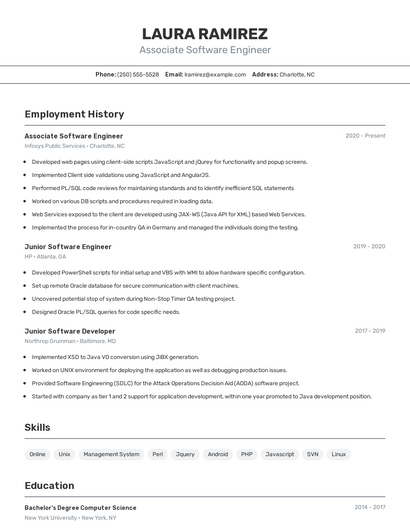
Have you ever wondered about the benefits corporate financial consultation brings to a business? This is the place for you. You will learn all about the benefits, costs and ways to get hired as a corporate accountant. Read on to learn more about career advancement opportunities and how to get hired as a corporate financial consultant. You will be glad that you did. This is a rewarding profession that pays well. It also allows you to improve your education and advance your career.
Benefits of hiring corporate financial consultants
You can use a corporate financial advisor to help you with major financial decisions or growth. Consultants provide a wide range of services and skills that can assist you in making sound business decisions. Depending on your company's needs, you can hire a full-time or part-time consultant. A corporate consultant can bring many benefits to your company.
First, a financial advisor will help you to analyze your cash flow and create a sustainable business strategy that will increase your bottom line. Having a financial consultant on your team can save you time, energy, and money, which will translate into bigger revenue. And since every business owner has their own goals, a consultant can help you achieve them. They can help you set your profit targets and determine what the future should be.

Costs of hiring a corporate financial consultant
Although hiring a corporate consultant to help you with your financial planning is a costly decision, there are many advantages. These consultants can provide invaluable advice for your business and point you in a direction that can help you make more informed financial decisions. Even your accountant may be able to refer you to a consultant. Here are some details about the cost of hiring a corporate accountant. Here are some key considerations.
Career advancement opportunities
There are numerous opportunities to progress in corporate financial consultancy. Cost Analyst, Business Analyst and Support Analyst are the entry-level positions. Financial Analyst is the highest. Mid-level professionals could move up to Sr. Financial Analyst, Strategic Planner, Cash Manager and Cash Manager. You can also progress in corporate financial consultancy if you have a Masters degree in accounting or Chartered Accountant. To be considered for these roles it is essential to have strong analytical and attention-to details skills.
There are many paths to corporate financial consulting. The chief finance officer oversees all levels. All other paths follow from there. Financial planning, also known by management accounting, analyses figures and reports. Controllership ensures that the financial information is accurate, and treasury oversees all cash inflows and outflows. A person may decide to specialize or become a personal advisor in financial services.
Be hired as a financial consultant for corporate clients
An excellent career option is to become a corporate financial advisor. This job often requires you to travel to other locations, and it may also require you to work non-traditional hours. Health insurance, dental coverage, 401 (k)s with matching money, paid time off and commuter benefit are some of the benefits. Financial consultants need exceptional client service skills as well as strong communication and time management skills. Here are some tips to help you get hired as a corporate finance consultant.

Obtain a degree in finance or related field. The financial industry is well-known for working long hours. Financial institutions do their best to minimize burnout. However, financial professionals must be prepared to work long hours. As a financial consultant you will evaluate the operations of companies to identify their strengths and challenges. Your knowledge of investment strategies and accounting will help you find solutions for your client's financial problems.
FAQ
What qualifications does a consultant need?
You don't just need to have a MBA, you also need to demonstrate your ability as a business consultant. You must have at least two years' experience working in consulting and/or training within a large company.
You will need to have worked closely alongside senior management teams in order to develop strategy projects. This would require you to be comfortable with presenting ideas and getting buy in from clients.
You will also need to pass a professional qualification test such as the Chartered Management Institute Certified Management Consultant certification (CMC).
Do I really need legal advice?
Yes! Consultants often create contracts with clients without getting legal advice. This can lead into problems down-the-road. For example, what happens if the client terminates the agreement before the consultant's completion date? What happens if your consultant doesn't follow the contract deadlines?
It's best to consult with a lawyer to avoid potential problems.
How is consulting different from freelancing
Freelancers can be self-employed people who provide their services to clients, without the involvement of employees. They typically charge hourly rates based on time spent working on a client's project. Consultants usually work for agencies or companies that employ them. Their salaries are usually paid monthly or annually.
Consultants have less flexibility than freelancers because they can control their work hours, and set their own prices. Consultants often offer better benefits such as vacation days and retirement plans, health insurance, and vacation days.
What skills will I need to be a consultant?
Strong interpersonal and analytical skills are essential for consultants. This is essential because you will be working on projects that you don't know the details of. You need to be able to manage people quickly and solve problems efficiently.
Communication skills are essential. Most clients expect to hear back within 24 hours. If they don't hear back from you, they assume you aren't interested. It's crucial to keep them informed and make sure they understand everything.
How do I attract clients to my consultancy business
The first step is to find an area you are passionate about. It could be anything from social media to public relations, but there must be something you feel strongly about. If you don't feel passionate about it, you might need to start small with web design. Once you have found the niche market, you need to understand why it works. What problems does it solve Why should people use it? What can you do to support them?
You could also approach businesses directly. Perhaps they are looking for someone who can help them understand SEO and content creation or just need advice on social media strategy.
If all else fails, why not offer your services at free events like networking evenings and conferences? You will meet potential customers and be able show your skills without having to spend money advertising.
Statistics
- 67% of consultants start their consulting businesses after quitting their jobs, while 33% start while they're still at their jobs. (consultingsuccess.com)
- Over 62% of consultants were dissatisfied with their former jobs before starting their consulting business. (consultingsuccess.com)
- According to IBISWorld, revenues in the consulting industry will exceed $261 billion in 2020. (nerdwallet.com)
- Over 50% of consultants get their first consulting client through a referral from their network. (consultingsuccess.com)
- "From there, I told them my rates were going up 25%, this is the new hourly rate, and every single one of them said 'done, fine.' (nerdwallet.com)
External Links
How To
How do you find the best consultant?
Ask yourself what you want from your new consultant before you start looking. Before you start looking for someone to work with, it's important that you know your expectations. A list of what you expect from a consultant is helpful. This might include skills such as project management, professional expertise, communication, availability, and technical skills. After you have listed your requirements, it might be a good idea to ask colleagues and friends for their recommendations. Ask them if they had any bad experiences with consultants previously and see how their recommendations compare with yours. Do some internet research if they don't have recommendations. There are many websites that allow users to leave feedback about their previous work experiences, such as LinkedIn and Facebook, Angie's List or Indeed. Consider the ratings and comments of other candidates and use these data to start your search for potential candidates. Finally, once you've got a shortlist of potential candidates, make sure to contact them directly and arrange an interview. You should discuss your requirements with the candidates and ask them how they can help. It doesn't really matter if they were recommended; as long as they understand your business objectives, they will be able to show how they could help you achieve them.